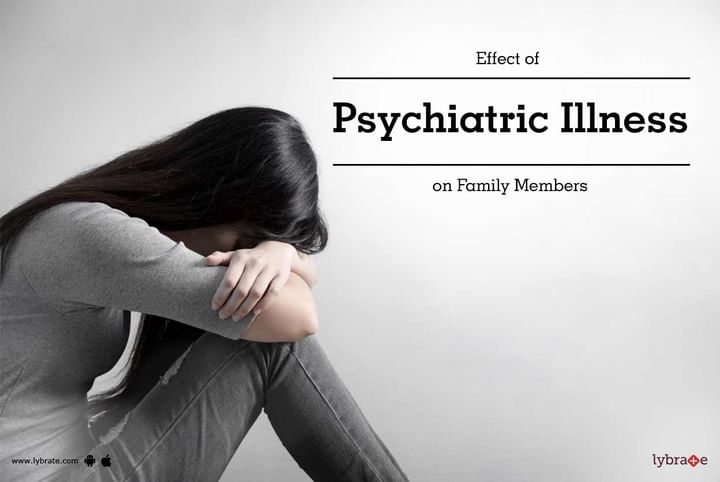Effect of Psychiatric Illness on Family Members
About the Illness
Psychiatric illness can have a profound effect on the individual's family members. Psychiatric illness often has to be fought by the family members along with the affected person. For some families, the very thought and pressure of a member being diagnosed with a psychiatric imbalance can put additional strain on them. More often than not, it is the family members who opt for separate counseling sessions, to cope with this new stressor. Fear not, as you are not alone, and the feelings you feel are felt by millions worldwide, whenever they are needed to take care of a family member with such an illness. Let us look at a few instances of the impact that they can leave on you.
Impact on a Parent
Parents are the most affected, as they find it extremely hard to cope with a system that is not geared up to acknowledge them as a partner in the recovery process. Most times, parents blame themselves for the condition their child is in, and they require separate sessions too when taking care of an affected child.
Impact on a Spouse
The impact is more severe, as the illness places an unwanted strain on the relationship. The life which he /she would have imagined has been eroded, and in spite of the good nature a person has, this ultimately leads to frustration and a physical barrier between the spouses. Also, when frustration sets in, medical care can reduce - thus affecting the patient even more.
Impact on an Offspring
Sometimes, it is the other way around, when your parents are affected by a psychiatric condition, and when you are in the position of a caregiver. This can have long term damage, as the child will have to look for his career and his growth in the society, along with the additional job of having to take care of the parents. The older the person gets, the lonelier they feel, and sometimes, their only interaction would be with their sibling, if they have any.
There are a number of ways by which you as a family member can take care of the affected person.
- Always establish communication with them. Find a means by which you can effectively communicate with them. Use this communication pattern to gain their trust.
- Never shy away from counseling sessions and professional help. These can go a long way in benefitting the affected individual.
- Provide them a safety network. Always let them know that they can bank on you, and that you will always be around for them. Their treatment will be much more efficient once they know they are safe.
- Give them time. You can always indulge in things they are interested about, and guide them. Once again make them feel safe to trust you. In summary, always remember that the illness affects you as a family member as much as it does the challenged person.
In case you have a concern or query you can always consult an expert & get answers to your questions!



+1.svg)
